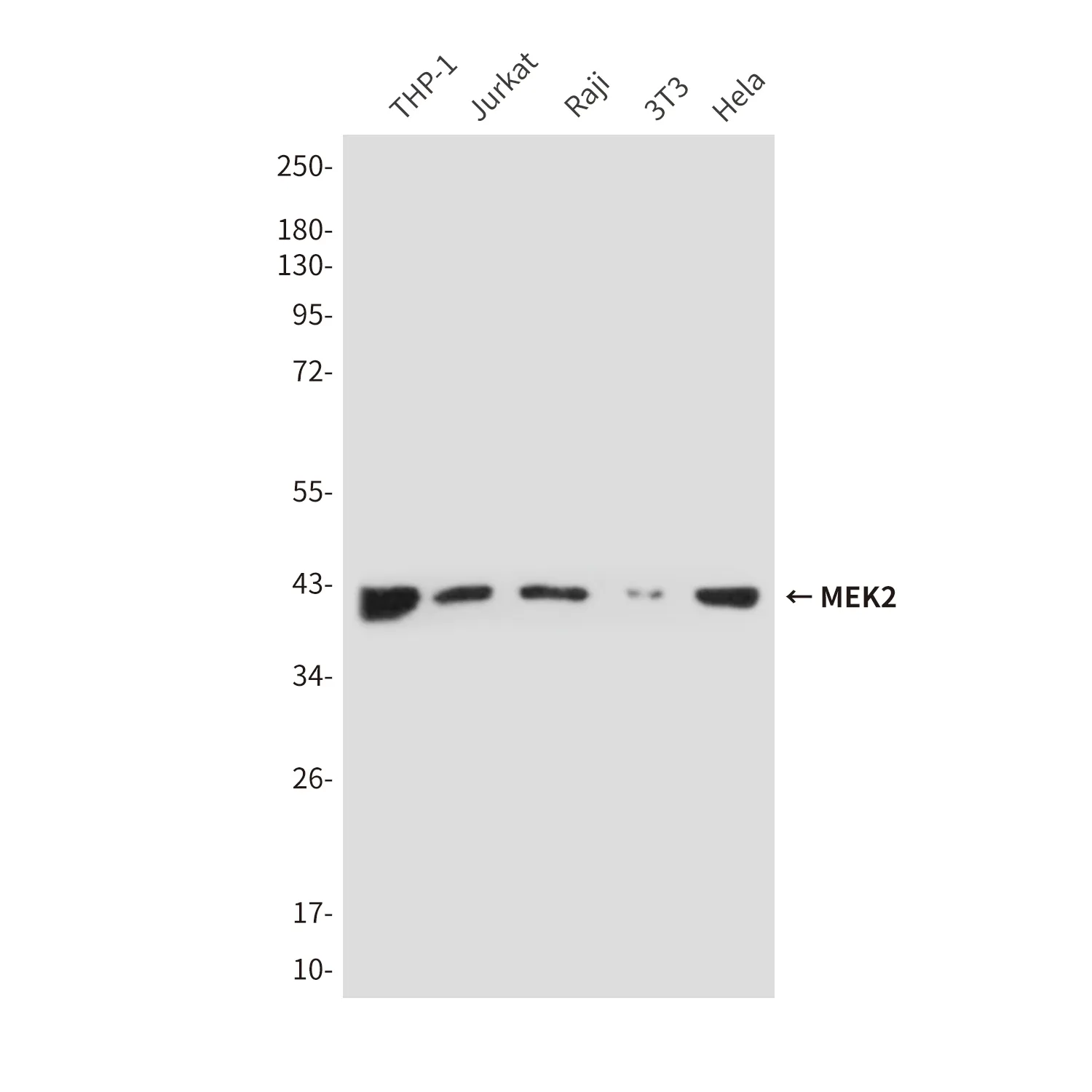Summary
Performance
Immunogen
Application
Background
Activated during M phase. Required for chromosome segregation at metaphase-anaphase transition and therefore for mitotic progression. Inhibition of activity results in apoptosis. Phosphorylates KIF11 to promote mitotic spindle formation. Protein kinase which plays an important role in mitotic cell cycle progression (PubMed:14563848). Required for chromosome segregation at metaphase-anaphase transition, robust mitotic spindle formation and cytokinesis (PubMed:19414596). Phosphorylates ATF4, CIR1, PTN, RAD26L, RBBP6, RPS7, RPS6KB1, TRIP4, STAT3 and histones H1 and H3 (PubMed:12054534, PubMed:20873783). Phosphorylates KIF11 to promote mitotic spindle formation (PubMed:19001501). Involved in G2/M phase cell cycle arrest induced by DNA damage (PubMed:18728393). Inhibition of activity results in apoptosis. May contribute to tumorigenesis by suppressing p53/TP53-induced cancer cell senescence (PubMed:21099361). Phosphorylates EML4 at 'Ser-144', promoting its dissociation from microtubules during mitosis which is required for efficient chromosome congression (PubMed:31409757).
Research Area




